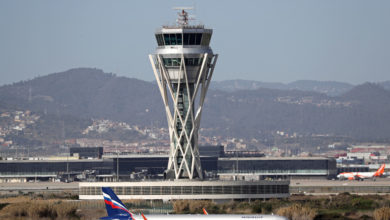The U.S. Declares Monkeypox a Public Health Emergency

On August 4, the U.S. federal government declared monkeypox—with more than 6,600 cases in the country—a public health emergency. Now, monkeypox in the United States is the second public health emergency simultaneously. The other being COVID-19.
The Secretary of Health and Human Services, Xavier Becerra has more control over accessing funds and other resources to help with the outbreak. This could allow for increased testing and more vaccines. Several states—including New York, which currently has about a quarter of U.S. cases—have already declared states of emergency to release state funds to help control the outbreak.
“We’re prepared to take our response to the next level in addressing this virus, and we urge every American to take monkeypox seriously and to take responsibility to help us tackle this virus,” Becerra said during a briefing announcing the declaration.
Becerra stated that the greatest need is for more health care professionals and doctors to be able to identify monkeypox, and to test more patients. The briefing was also attended by Dr. Rochelle Walensky from the U.S. Centers for Disease Control and Prevention. She stated that the U.S. currently uses only 10% of its testing capabilities. In recent weeks, about 8,000 monkeypox tests have been conducted per week. It is possible to reach more healthcare providers, and provide information about how and when monkeypox can be tested. This could improve testing as well access to vaccines or treatment.
Learn More: What it Really Feels Like to Have Monkeypox
U.S. health authorities advise people who are at high risk for monkeypox—including healthcare workers and men who have sex with men, among whom the virus has been spreading most quickly during this outbreak—to get vaccinated as soon as possible with one of the two available vaccines, ACAM2000 or Jynneos. Both have been released from the Strategic National Stockpile, the nation’s store of supplies for health emergencies. Walensky estimates that about 1.6million Americans are high-risk for getting the monkeypox virus. There is 1.7 million vaccines in the Stockpile. Becerra stated that the government ordered 2.5 million additional doses of Jynneos vaccines from Bavarian Nordic.
Until additional doses are available, Dr. Robert Califf, commissioner of the U.S. Food and Drug Administration, said the agency is reviewing data to extend the available doses through a practice called “dose sparing.” That involves injecting the monkeypox vaccine into the outermost layers of skin rather than deep into the muscles. Califf stated that it can accelerate the distribution and circulation of the vaccine in order to stimulate the immune systems. This would only mean one-fifth as much vaccine. This is how the rabies vaccine currently works. That would extend the number of doses available, and so far the strategy appears “promising,” he said. Scientists are still evaluating whether this intradermal injection could preserve the vaccine’s potency and offer the same protection as the initial dose.
TPOXXX is an antiviral medication that has been approved to treat smallpox. However, it may also work against monkeypox because the viruses are related. Because the pill-based treatment has not been approved to treat monkeypox, doctors must register in order to dispense the drug. Patients also need to complete informed consent forms. Becerra might issue an emergency TPOXX authorization under the public health crisis. This will remove the need for paperwork and make it possible to supply the medication to any doctor and pharmacy. Becerra, Califf and Walensky cautioned that such steps haven’t been taken yet. They also noted the need to prove that TPOXXX is safe and effective. TPOXXX’s effectiveness among monkeypox victims is being studied and may be launched soon.
Here are more must-read stories from TIME





